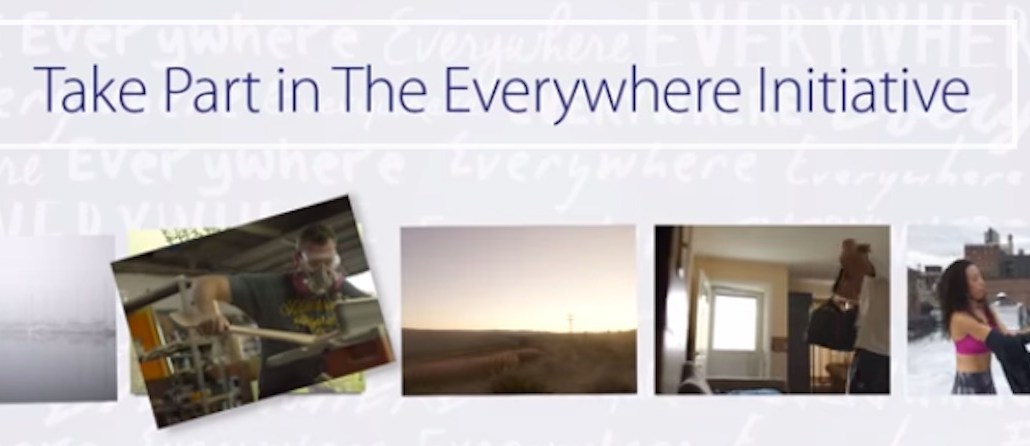Last chance to save on Digiday Publishing Summit passes is February 9

For Visa, partnering with startups is as much about cultural osmosis as cool marketing.
In March, Visa launched the “Everywhere” challenge, using a platform created by Kite, a third party that connects brands and startups. Three challenges were issued over eight weeks: rewards, checkout and reaching millennials. Winners got $50,000 each.
“We’re a huge business, with 2.4 billion cards,” said Shiv Singh, svp and global head of digital and marketing transformation and a former Pepsi marketing exec. “But we’re based in the Valley. We know there are hundreds of companies out there disrupting us. The only way we can avoid being disrupted is embodying the values of these startups and changing our own culture.”
Visa selected three winners for its startup challenge last week. The winners were: Flag, a photo-printing app that will let brands sponsor photos and put ads on the back, a form of direct mail; Lisnr, which sends data over a sound system to phones; and Virgil, a career-builder that helps young job seekers find jobs and helps employers understand how to keep millennials around.
The briefs were created based on North American marketing objectives. Visa, led by Singh, will also work with and coach them through introductions and help them develop a strategy to approach brands. “And by the association with the Visa brand, we feel it’ll help their business.”
The question for startups is whether such brand incubator programs are worth the effort. After all, the name of the game in startups is moving fast, iterating on product and securing users. Brands are not exactly the most nimble of partners.
Brands wooing startups isn’t a new concept. One of the earlier efforts came from Pepsi, which in 2010 launched PepsiCo10, an incubator program that matched startups with PepsiCo brands. Last year, Heineken launched a competition pitting tech firms against each other to answer briefs like how to make drinking in moderation “cool,” and how to improve the beer experience inside bars. At this year’s SXSW festival, brands like McDonald’s and Unilever also held their own pitch competitions. Coca-Cola has a “founders” program that gives startups funds and support from the company.
Ari Newman, partner at Techstars Ventures, said brands like Visa or any others can’t just take a bunch of smart product managers, put them on a different floor, and expect magic to happen. “You get them there with espresso, bean bag chairs and a year’s worth of capital, but what’s changed in their mental model?” Instead, having a startup attached to, but not owned by, the brand, gives it the freedom to really innovate. And brands have two things startups do not: money and time.
Singh, who himself worked with Pepsi’s incubator program when he worked at the company, said Visa’s competition is the “third phase” of the brand-startup relationship. In phase one, brands just “did what they wanted and ignored startups.” In phase two, brands did test runs with companies like Facebook, but more via IT teams and not as much via consumer engagement. In the third phase, it becomes about business objectives. “It’s not just about inheriting the coolness vibe,” he said. Going forward, Visa plans to open similar competitions in other markets. “This is just the first class.”
“When you’re a big company and you’re in the boardroom figuring out the next big product or trying to beat the competition the executive team has this fiduciary duty to shareholders to fund, explore and encourage innovation,” said Newman. “And if the only place you look for innovation is inside corporate machine, that’s no good.”
More in Marketing

GLP-1 draws pharma advertisers to double down on the Super Bowl
Could this be the last year Novo Nordisk, Boehringer Ingelheim, Hims & Hers, Novartis, Ro, and Lilly all run spots during the Big Game?

How food and beverage giants like Ritz and Diageo are showing up for the Super Bowl this year
Food and beverage executives say a Super Bowl campaign sets the tone for the year.

Programmatic is drawing more brands to this year’s Winter Olympics
Widening programmatic access to streaming coverage of the Milan-Cortina Games is enabling smaller advertisers to get their feet in the door.





